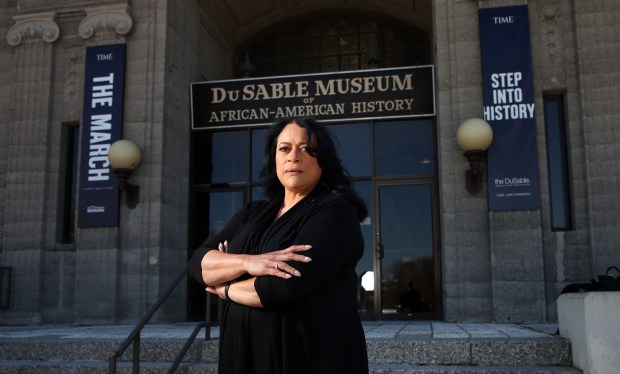Juneteenth and the Fourth of July represent sacred remembrances of freedom — albeit freedom of different kinds, in different contexts and with different histories.
If you thought the most important part of last month’s Juneteenth holiday was what happened at the barbecues the weekend before, think again. Sure, everything you did to celebrate the granting of freedom on June 19, 1865, by the Union Army to the 250,000 enslaved people still living in Texas — the last holdout of slavery in the United States — was an exhilarating moment of joy. It might even have seemed the perfect answer to the difficult questions asked in 19th century abolitionist Frederick Douglass’ much touted July 5, 1852, oration, “What, To the Slave, Is The Fourth of July?”
Invited to speak by the Rochester Ladies’ Anti-Slavery Society, Douglass expressly chose to appear on the day after the holiday. In his speech, he describes the meaning of the Fourth of July for the American people, how its triumphant message of freedom and liberty reverberates among the country’s citizenry with an almost holy zeal, and how it bespeaks the principled and valiant historical battle against monarchical oppression that was the revolution of 1776 and the commitment to and importance of personal sovereignty. Offering a fervent understanding of the glory of this particular moment of freedom that created the American people as one nation, Douglass explores their emergence from subjugation into a proud new reality. Absent a king, Americans became a people united under one banner, the idea of “one nation, indivisible, with liberty and justice for all.”
But Douglass also addresses the holiday’s flip side, providing a response to the question posed by his title: “What, to the slave, is the Fourth of July?” For Douglass, amid all the celebrations of the Fourth of July is to be found “the mournful wail of millions” — that is, the voices of all of those, like him, who could not share in that immense happiness. For Douglass, the exuberance of the Fourth of July was a reminder of bondage for those like him who were “not included within the pale of this glorious anniversary! … The rich inheritance of justice, liberty, prosperity and independence, bequeathed by your fathers, is shared by you, not by me.”
Most importantly, Douglass asserts in his speech that the “Fourth of July is yours, not mine.” Setting himself and those like him apart from this commemoration of the American civil body, Douglass seeks to make visible the objectionable reality of slavery, of bondage and the total lack of the very freedom the holiday celebrates.
Juneteenth and the Fourth of July concern freedom of different colors. We don’t fully discuss the tangled history of freedom in our celebration of the Fourth of July, as its focus is the birth of the American nation. But it implies the birth of a white nation, because the problem of color as this inflects American ideas of freedom is sublimated within it, in the deep silence of what the late Nobel Prize-winning African American author Toni Morrison called “unspeakable things unspoken.”
Yet this is also where we find the true significance of the 3-year-old federal holiday of Juneteenth and its claim on the idea of freedom, different from, yet just as important as, that of the Fourth of July. Though Juneteenth has been privately celebrated over the many years since its historical moment, now on the national stage, it asks us to reflect on a more complicated understanding of ourselves as Americans, in light of the Fourth of July — and especially in light of our semiquincentennial in 2026. As the think tank New America has highlighted with its Us@250 initiative, that historical milestone should inspire us to re-imagine the American narrative based on pride in the nation’s progress, a reckoning with the wrongs that have challenged its ideals, and the aspiration to truly achieve that “multiracial and inclusive democracy” grounded in “principles of equality, fairness and opportunity.”
In Chicago, the spirit of these three concepts is encompassed by the vision of Perri Irmer, president and CEO of the city’s DuSable Black History Museum and Education Center, who was recently honored for her work with Chicago and its public schools at the 2024 gala of CPS Lives, a Chicago arts nonprofit that lauds public education in Chicago, the creation of CEO and founder Suzette Bross.
On June 19, 2022, Irmer officially changed the museum’s name to highlight its educational mission, putting a spotlight on the central significance of Juneteenth. This was an important step, Irmer said, and even more so now, “when folks are trying to erase our history, to almost legislate continued ignorance about American history.” And it’s meaningful that she says American history, because African American history is American history.
The addition of Juneteenth as a federal holiday encourages us all to celebrate America’s special brand of freedom in a larger, more complete frame. As we celebrate the Fourth of July, this knowledge, and the will to learn more, enables the hope for that more democratic future we seek. In this, Douglass’ lament can be transformed into another, quite different, plea — that is, what, to us, is Juneteenth today? What should it be? Juneteenth after Juneteenth, after all of the celebrations, the ebullience, the joy, must go forward with us beyond the day itself, into a deeply respectful awe of the African American past, the responsibility to learn and the committed refusal to ignore.
Cyraina Johnson-Roullier is associate professor of modern literature and literature of the Americas at the University of Notre Dame.
Submit a letter, of no more than 400 words, to the editor here or email letters@chicagotribune.com.



